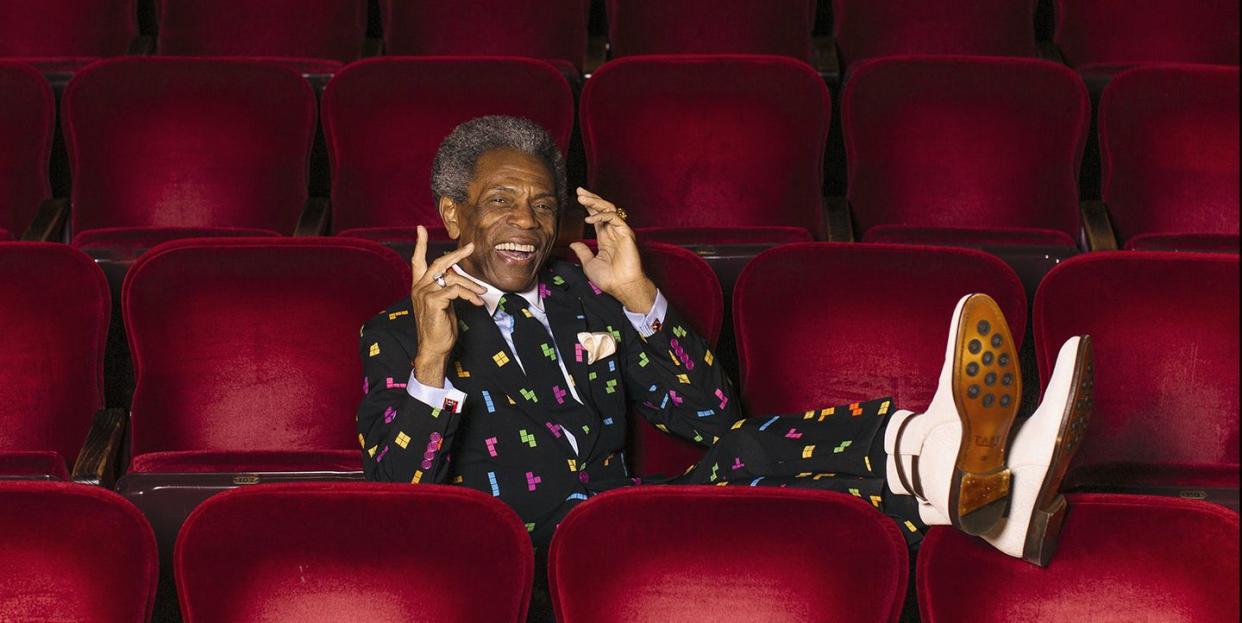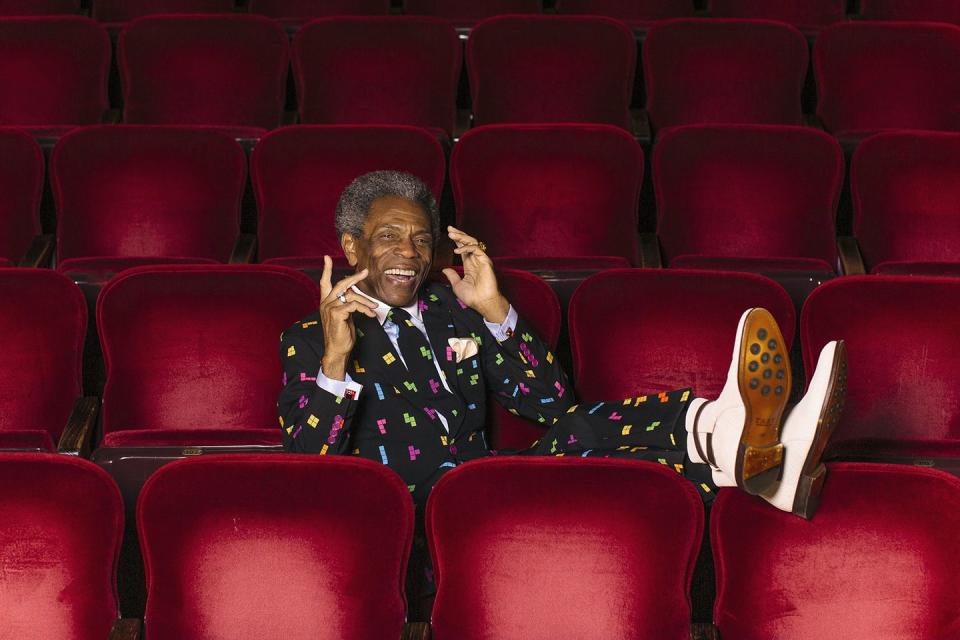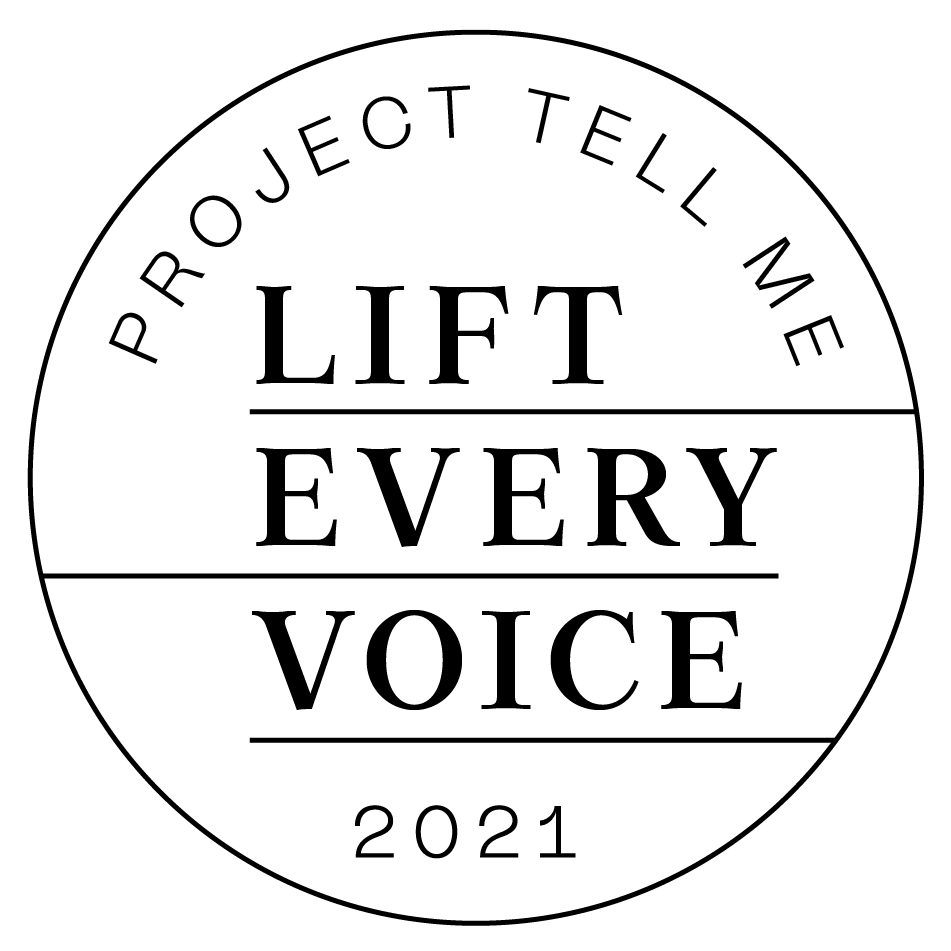Tony-Winner André De Shields on the Essential Qualities His Parents Taught Him

- Oops!Something went wrong.Please try again later.
“Hearst Magazines and Verizon Media may earn commission or revenue on some items through the links below.”

Interview by Kenia Mazariegos/
Photograph by Flo Ngala
André De Shields, 75, who won the 2019 Tony Award for Best Featured Actor in a Musical for his performance as Hermes in Hadestown, recently launched a podcast called “Live from Mount Olympus,” which uses Greek mythology to teach life lessons to young people.
Kenia Mazariegos: You’re an actor, but not just an actor: a dancer, a performer. You’ve been in Broadway plays—Ain’t Misbehavin’, Play On!, The Full Monty, The Wiz, and Hadestown. You’ve even won Emmy and Tony awards.
André De Shields: And the Grammy Award.
KM: Ah, right, sorry. And so, I have a burning question to ask you, someone with so much talent: What’s the best song to sing in the shower when you need a mood lift?
AD: Well, I’ll tell you, you must be familiar with the hymn that we sometimes refer to as the Black National Anthem, “Lift Every Voice and Sing.” That always shifts my mood, and even when the mood starts off as good, it just gets better. [Sings.] “Lift every voice and sing, Till Earth and heaven ring, Ring with the harmony of liberty, Let our rejoicing rise, High as the listening skies, Let it resound loud as the rolling sea. Sing a song full of the faith that the dark past has taught us, Sing a song full of the hope that the present has brought us, Facing the rising sun of our new day begun, Let us march on until victory is won.” Now is the mood better?
KM: That was absolutely amazing! But seriously, all jokes aside—
AD: That was no joke.
KM: So much of your life revolves around music and acting, and I wonder, what was a defining moment in your childhood that ignited your passion for performing?
AD: I have to say that the journey that I’m on, the destiny that continues to unfold before me, is sourced in the dream that my mother had. She revealed to me when I was old enough to have an adult conversation with her that she had always wanted to dance, but being born at the turn of the 20th century, that was not considered a decent career for a young colored woman, so my maternal grandparents, her parents, said, “No, that is not what you’re going to do with your life.” Now, similarly, my father, he wanted to sing. His parents said, “That’s not a responsible way to be a breadwinner, to be a good husband.” So my parents deferred their dreams.
I’m number nine of 11 children, so I consider myself lucky number nine, because the dreams that they couldn’t make come true for themselves came true through me.

KM: What are some of the most valuable lessons that you feel you’ve learned from your parents?
AD: Many, but I think I can distill it to four lessons, and they would be: persistence, tenacity—and there’s a difference between persistence and tenacity—determination, and hardiness. Now, I know they all sound similar, but you cannot achieve your personal success just by being physically strong. You have to be emotionally strong, you have to be intellectually strong, you have to be spiritually strong. So those are the four life lessons that were exemplified by my parents and my older siblings, and they are the life lessons that keep me going today.
KM: Do you think the lessons your parents instilled in you helped you growing up in a time of segregation in the 1940s?
AD: Now, I was born in 1946, so I would move that to the following decade. But yes, those lessons helped me to get through the '50s. Now, we associate the '50s into the '60s with the Civil Rights Movement, but I’m part of that generation, the first generation that benefited from Thurgood Marshall’s successful argument to the Supreme Court, which we know as Brown vs. Board of Education, when we finally decided that the system of education in these United States of America had to stop being separate and unequal.
What I learned, as a very young child, is that I needed to master the English language so that I could understand what my would-be oppressors were saying to me and about me, and so that I could make myself understood to my would-be oppressors. So education has been a beacon in my life and career, and language has been very important for clarity.
KM: People often idolize success, but they don’t often think about the many mistakes that it takes to get there. What are some of the mistakes that you made that offered the most growth?
AD: I didn’t make any mistakes. Now, I’m not sticking my chest out and boasting, but what I am saying is if one wants to be sure about one’s purpose in life, and if one wants one’s destiny to unfold in one golden step after the next, what’s required is that you surrender.
I don’t know if you’re aware of my Tony acceptance speech, 2019, Sunday, June 9. We are cautioned that you only have 90 seconds to make your speech. I’ve seen too many of my colleagues try to thank 100 people in 90 seconds; it’s not possible. And, certainly since 9/11, we’ve been taught “If you see something, say something,” but I believe “If you know something, share something.” So when I was fortunate enough to win the Tony, I dropped this wisdom bomb of the three cardinal rules that would explain sustainability and longevity in the career; this is how you avoid the mistakes. The first rule is “Surround yourself with people whose eyes light up when they see you coming.” So that means there’s someone there who’s always got your back, who’s always being the wind beneath your wings. The second rule is “Slowly is the fastest way to get to where you want to be.” Our parents have always said to us “Haste makes waste,” and then there’s that parable of the race between the tortoise and the hare, and one would think the hare, which is so fast, would win the race, but the tortoise won the race because the tortoise is slow and steady. And then the third rule is “The top of one mountain is the bottom of the next, so keep climbing.” The personal success is not about the accumulation of things as much as it is the deeds that you have done to achieve the heights to which you can ascend. But don’t spend time at the top of any one mountain: Take a moment, take in the panorama, take in the distance, take in the view, but then understand there’s more work to do. Keep it in your heart, keep it in your mind, and keep going forward.
KM: Many actors have criticized Hollywood for the lack of diversity. I don’t know how you feel about this personally, but what’s been your experience accessing non-Black roles as a Black actor?
AD: I’ve been very blessed. I’ve been very fortunate. When people ask me, just even on a daily basis, “How you doing, André?” my response is, “I live an anointed life.” Now, all of this goes back to keeping your eye on the prize. I believe that the universe recreates itself for our pleasure. I believe that the universe is a cornucopia and all it does is spill abundance. I believe there’s no such thing as lack, there’s no such thing as insufficiency, there’s no such thing as inadequacy. There is enough for everybody regardless of your creed, your color, your religion, your nationality, your gender, etc. This is where we get into trouble, though; the rule is this: Pursue only those blessings or only that abundance that has your name on it.
Now, I’m not so Pollyannaish to think that there is not systemic racism in this country. Yes, there is, but the way to combat it, in addition to protesting, in addition to passing legislation, the way to combat it is to bring to the table your unique self, your authentic self. I’m not competing, I’m bringing my unique gift to the table. It’s like a potluck dinner, right? You don’t want everybody to bring salad to the dinner. You want someone to bring their best fried chicken, you want someone to bring macaroni and cheese, you want someone to bring some good cornbread. It has to be diverse, it has to be equitable, it has to be inclusive. But you can’t look for that only in the external world if you don’t understand first about yourself that you have to discover diversity there. We’re always saying that African Americans do not constitute a monolithic culture, which is correct, but as an individual African American, I’m not monolithic either. I am many things, contradictions, talents, tools, ideas, concepts, so if I can’t first discover diversity in myself, I’m not going to find it in the external world either. If I can’t first find equity in myself, I’m not going to find it in the external world. If I can’t first find inclusiveness in myself, I’m not going to find it in the external world. Because as it is above, so it is below; as it is inside, so it is outside.
KM: That’s beautiful. I do wonder, though: Statistically, there are fewer Black roles, and a lot of Black actors have felt that they don’t necessarily fit in certain boxes, and so there have been discussions of quality of roles in terms of stereotypes, and also equality of pay. How does that make you feel, knowing that, statistically, this has been proven to be true?
AD: It makes me feel that my work isn’t over. It makes me understand that this idea that the United States of America is the greatest democracy in the history of the world is not true. It is a democracy, but it’s an imperfect democracy for everybody, not just for those of us who are the recipients of discrimination. It’s an imperfect democracy for those who would discriminate, but that’s the reality. If we beg for crumbs from the table, then that’s exactly what we’re going to get, crumbs from the table. We are a unique culture, probably the most unique culture in the world because African Americans are descendants of the Black Africans that were kidnapped from the west coast of Africa and brought to the New World as slaves, and what did we do? In one generation, we assimilated a new culture, a new religion, a new language—in one generation. Which is why we’ve been able to survive, thrive, and now we are beginning to prevail. We cannot undo that, but what we can do is continue to chip away at the stone mountain of white supremacy that is the cause of that discrimination. That’s not going to happen overnight, it’s not going to happen in a generation, it’s going to happen generation after generation, so each of us has to recognize the uniqueness of our gifts, understand that before we ask for or even treat others with empathy and compassion, we must treat ourselves with empathy and compassion, and create where there has been none, but reconstruct where there has been Black civilization.

KM: You won your first Tony Award in 2019 for Best Featured Actor in a Musical for your performance in Hadestown. Was this the greatest accomplishment of your life?
AD: Well, the high point of my journey as an actor came in 1966. I was the first person in my family to go to college. When I arrived at Wilmington College, a drama teacher said, “Are you an actor?” I said, “That’s what I want to be.” He said, “Good, because I want to direct A Raisin in the Sun on campus, but there aren’t enough Black actors.” Long story short, I was 19, and he cast me as Walter Lee Younger. My parents got on a bus in Baltimore and came to Ohio to see me perform for the first time, finally understanding I did have talent and there was reason to encourage me as opposed to caution me.
KM: Do you have any last words that you want our audience to remember?
AD: What I’d like to leave with our beloveds who have joined us in this conversation is simply this: We are in this together; we have to celebrate our differences, not curse them; we have to look at the universe around us and imagine, if the universe were uniform, if the universe were monolithic, if the universe were homogenous, if the universe were one thing, it would be the most boring experience. The universe is diverse. The universe is inclusive. We are reflections of the universe, and we should surrender to that. We should respect—first recognize and then respect the beauty that is in each of us, and to be sure each of us is beautiful. There’s a word I want to share with you that comes from the network of Bantu languages that’s spoken in southeastern Africa. It is ubuntu, and it means “I am because you are.”
About the Journalist and Photographer
Turn Inspiration to Action
Credits: Flo Ngala: Erik Carter
This story was created as part of Lift Every Voice, in partnership with Lexus. Lift Every Voice records the wisdom and life experiences of the oldest generation of Black Americans by connecting them with a new generation of Black journalists. The oral history series is running across Hearst magazine, newspaper, and television websites around Juneteenth 2021. Go to oprahdaily.com/lifteveryvoice for the complete portfolio.

You Might Also Like

